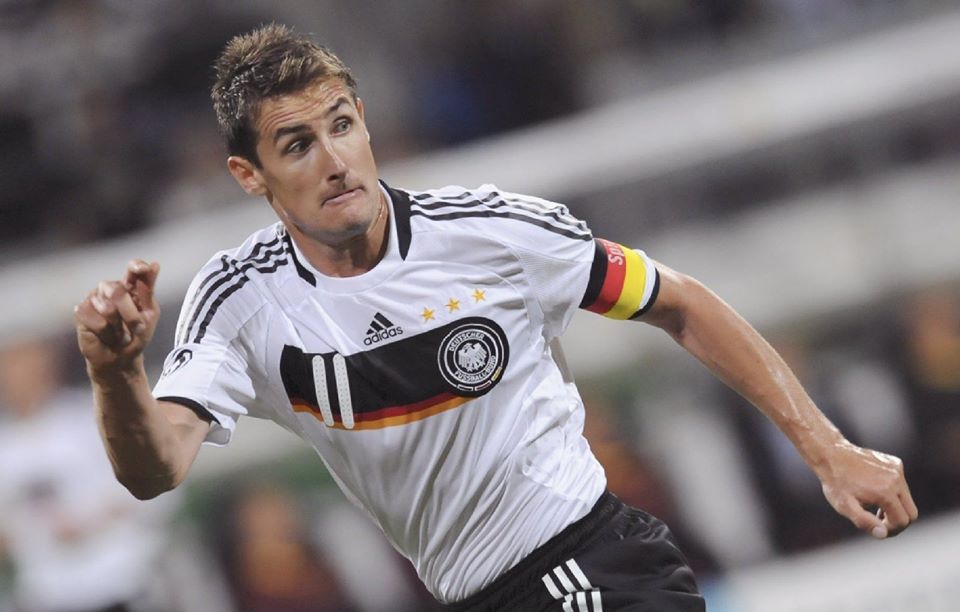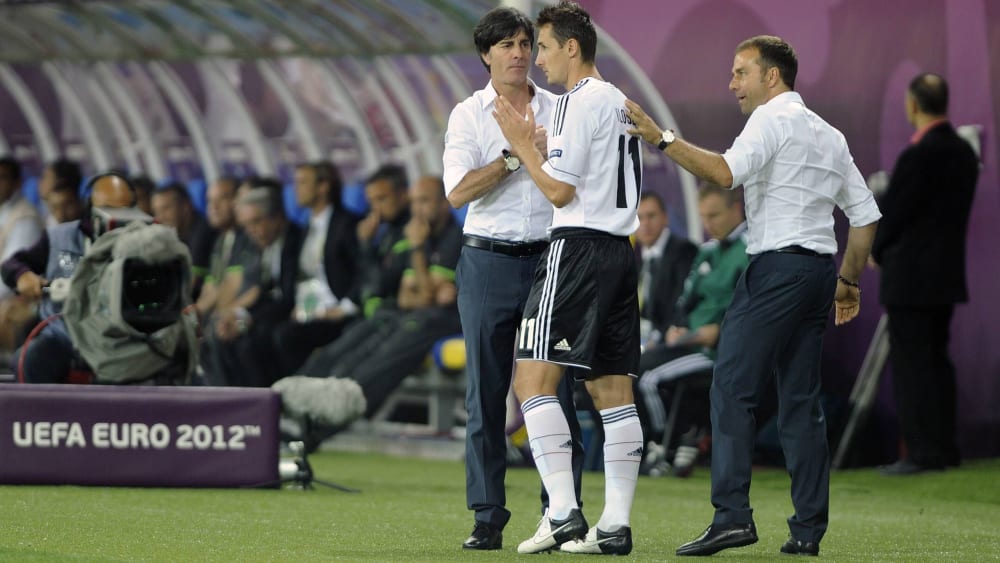This Thursday, Joachim Löw will step into the limelight for the last time at the international match against Liechtenstein. In the run-up Miroslav Klose remembers the great triumph in 2014 – and the historic exit in 2018.
Hard to say what the differences were, but somehow it was different, he said, the atmosphere, the accommodation, the round of 16 against Algeria, where the German team faced elimination. “All of that made us believe in the big one, and Jogi sensed that and supported it with his decisions,” says Miroslav Klose in an interview with the “Süddeutsche Zeitung”.
In 2014, the now 43-year-old celebrated the greatest success of his career together with Joachim Löw: the title at the World Cup in Brazil. Now Löw says goodbye, a great coach who was so successful not least because he always maintained a close relationship with his players.
“He also let himself be changed sometimes “
When, for example, it was a question during the 2014 World Cup of whether Philipp Lahm would be better off in central midfield or as a right-back, Löw involved his leading players in the decision-making process. “I think it’s one of Jogi’s great strengths that he listened to the team in such cases,” says Klose, “he even let us change his mind when we said: But we felt more comfortable with the other plan.”
That, says Klose, was an essential building block of the success: that Löw – and his assistant at the time, Hansi Flick – paid attention to the opinions of the players: “The two of them together, that was great cinema, both professionally and personally.
And then suddenly it goes bam-bam, and you’re on the plane home.

During his 15 years as national coach, Löw has led his team to at least the semi-finals five times at seven tournaments – but in 2018, the DFB team was eliminated in the group stage of the World Cup, and at the European Championship in 2020, they reached the last 16. A failure that, for Klose, had less to do with Löw than with the team structure: “I believe that the generation with Kimmich and Goretzka will soon be ready to hold up a trophy in the DFB jersey, but in the last two tournaments there was certainly a lack of inner leadership in the team.”
At the finals in Russia, Klose also said, “maybe subconsciously this feeling crept in with all of us: We’re Germany, we’ve reached the semi-finals in four World Cups in a row, we’ll do it again this time. And then suddenly it goes bam-bam, and you’re on the plane home.”
The abrupt exit from Russia has many in footballing Germany looking critically at the Löw era, but Klose thinks so: The World Cup-winning coach’s record speaks for itself. Based on the numbers Löw has to show, there is no question: “Jogi was and is a great coach.





